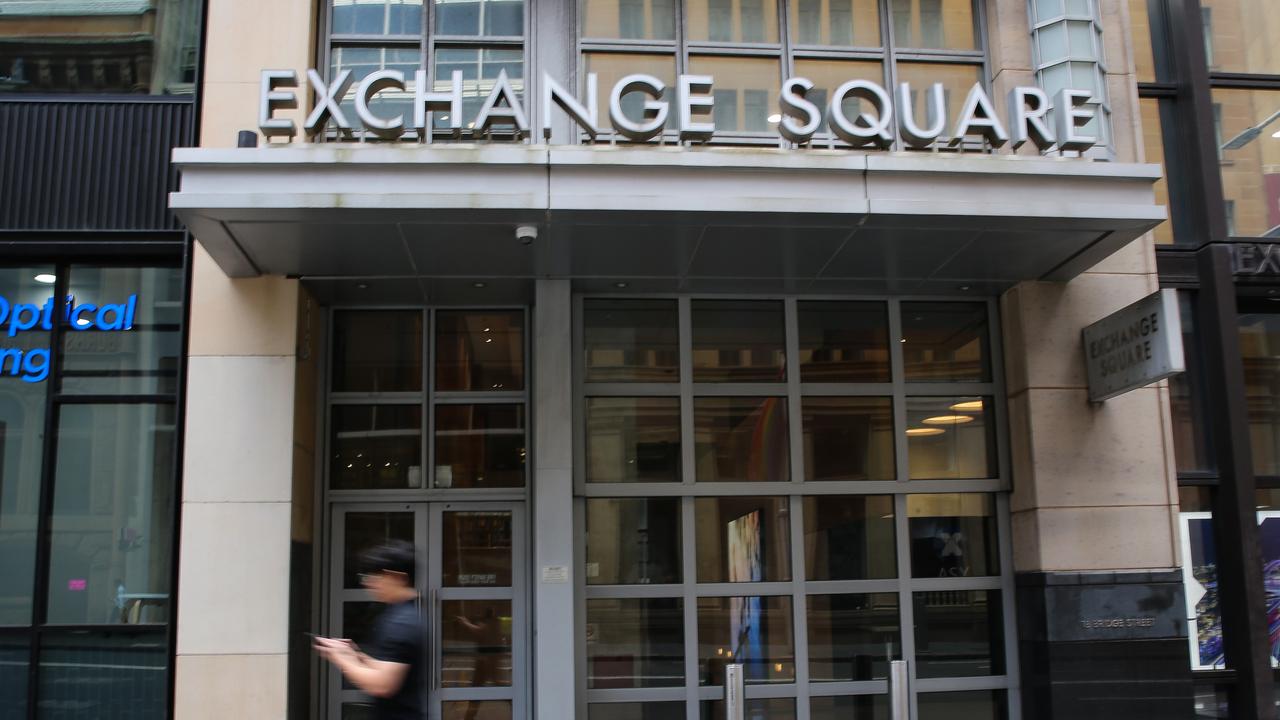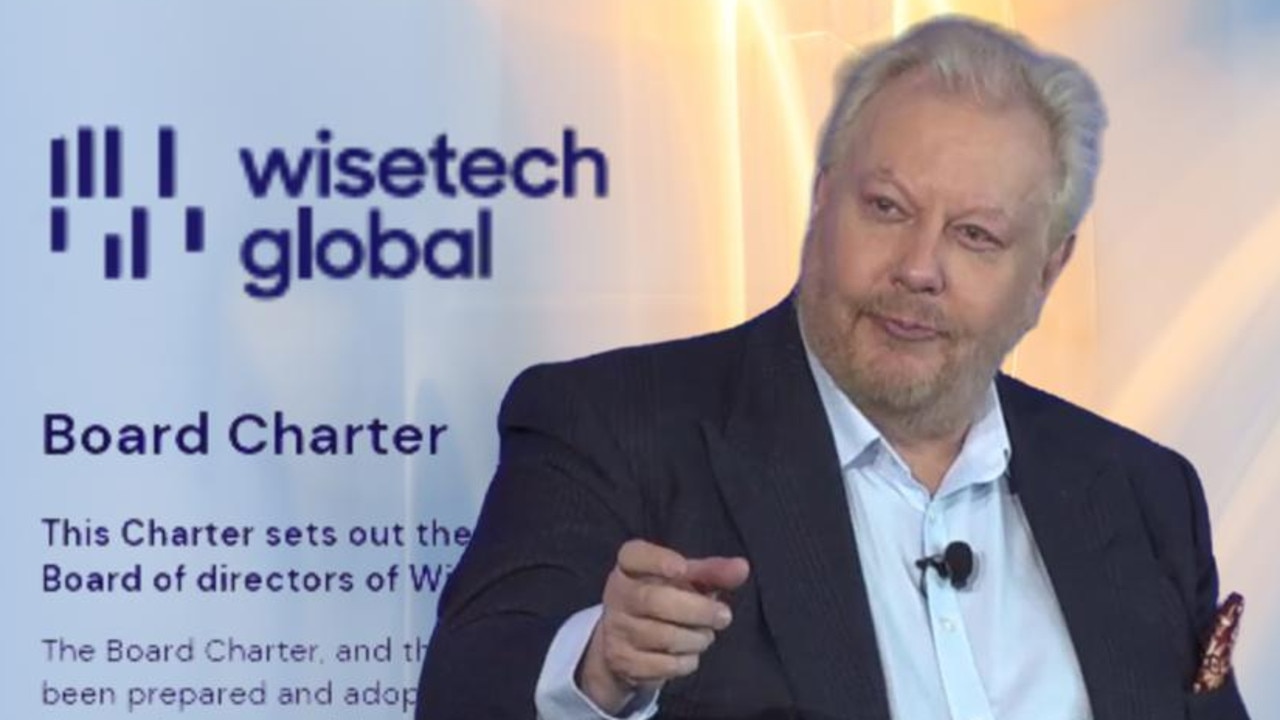Election date means no RBA interest rate decisions will come into play during this campaign
Albanese has declared he wants to make this election about the cost of living. The real test will be on how forgiving voters are prepared to be on interest rates.
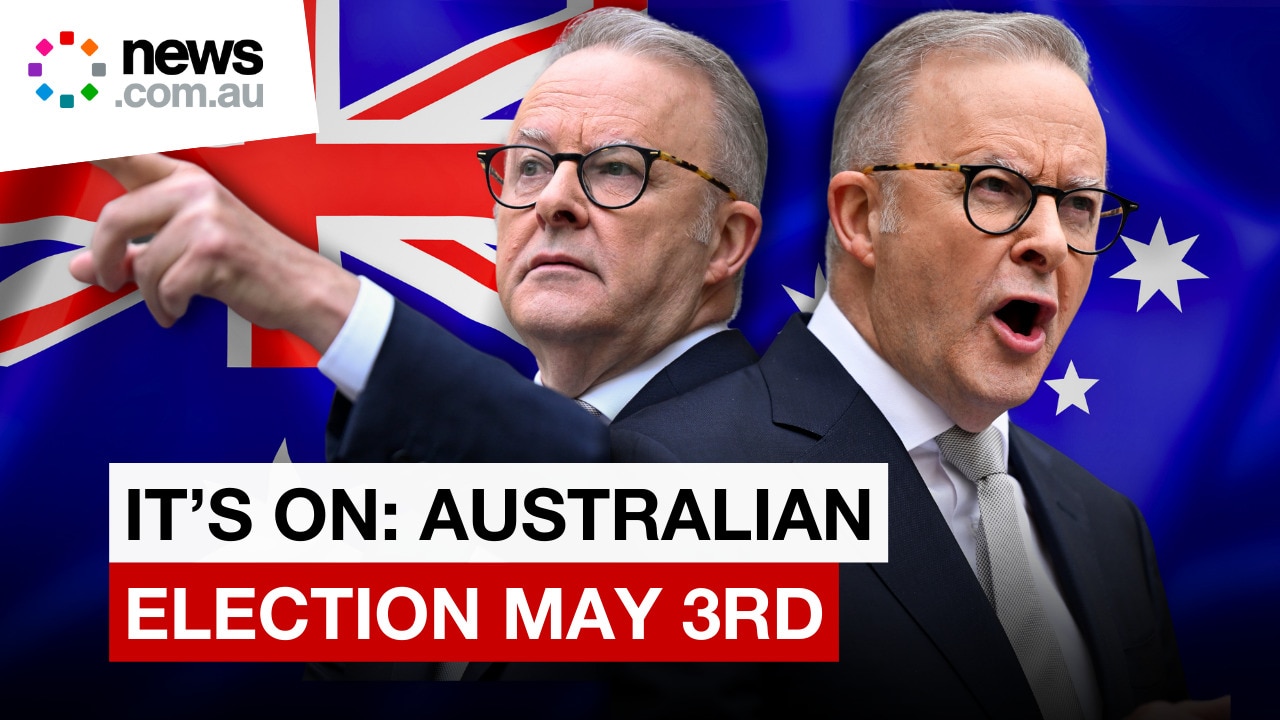
Business
Don't miss out on the headlines from Business. Followed categories will be added to My News.
There’s plenty of economic hits to come in the next five weeks, however the big one that has the potential to make or break incumbent governments will be missing from this campaign.
Anthony Albanese’s call for a May 3 poll will sit outside the window for a possible Reserve Bank interest rate cut. The direction of rates is moving down, the real test is whether voters will be so forgiving about the 12 rate hikes since Albanese took charge.
Just three weeks out from the 2022 vote, the RBA crashed the then Morrison government’s campaign with its first post-Covid pandemic interest rate hike and issued caution that more were likely to come.
Although Australia’s cash rate at the time was close to zero, this hike focused voters minds that harder economic times were ahead – this turned out to be painfully correct.
This time around, markets are fully pricing in an interest-rate cut in July. There’s a 70 per cent chance of a cut in May – but that meeting isn’t scheduled until three weeks after the polls have closed. The RBA has a meeting next week, and even though inflation is cooling, it is widely seen as too early to cut.
The timing of the poll also sees Albanese making a calculation on the economy. He is betting the feel good factor and boost to confidence of last month’s 25 basis point cut will linger and the RBA next week could at least put on the agenda the prospect of more to come at least this year. This plays into Albanese’s cost of living campaign.
Albanese also knows there is a risk, albeit very small, the RBA could warn about hike interest rates again if inflation got away too quickly. Given the momentum of inflation data of late April would be too early for jawboning. However, the central bank could certainly revisit its outlook by late May and the global trade war could add to the rate uncertainty. Rates in this cycle peaked at 4.35 per cent. RBA governor Michele Bullock cautioned with last month’s hawkish cut this it a finely balanced decision, and she was still concerned about inflation.
Back in 2007 the RBA famously crashed John Howard’s campaign with an interest rate hike (then to 6.75 per cent) just two-and-a-half weeks out from the then federal election.
While this wasn’t the deciding factor, it certainly helped Labor’s Kevin Rudd storm to a defining win with a powerful economic argument.
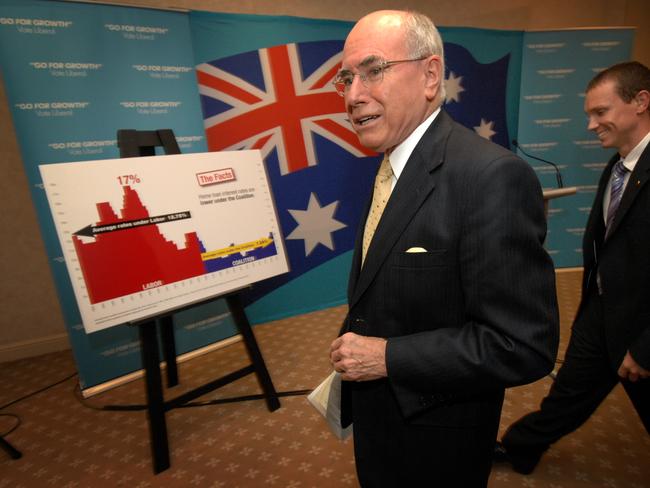
Howard had pledged through his previous election campaign that interest rates would be at record lows under his government – yet the central bank hiked rates six times in his final term.
While interest rates are starting to come off both here and globally, Anthony Albanese’s government has a much more formidable challenge.
Under his watch the RBA hiked interest rates 12 times – including two super-sized 50 basis points cuts within months of being voted in.
Granted he took charge as the die was already cast on interest rates. All central banks were moving hard and even higher at the time in response to the global inflation bubble, however the shock of the hikes, and slowing economy will surely stick in voters minds.
Albanese wants to make this election about the cost of living. The real test will be on how forgiving voters are prepared to be on rates.
Big forces
Beyond rates, the other big economic forces set to shape this election are energy and Donald Trump’s trade war.
Opposition leader Peter Dutton declared “energy is the economy”. Unfortunately, energy policy is as complicated as ever with both parties at odds in how to get there.
Albanese will need to prove to voters he has more substantive policy for energy security and bringing down prices than costly subsidies or pumping billions into renewables.
Dutton has plans for a gas reservation policy on Australia’s east coast aimed at putting up to 100PJ of gas into the tight domestic market. But he has already put off-side the same producers that can deliver more gas into the system. As MST Marquee’s energy analyst Saul Kavonic said, the real risk of this policy is Queensland LNG operators will “reduce investment to minimum levels” which won’t bring more gas to market.
The Albanese government had its own moment of a dramatic intervention into the gas market when six months after being voted in had capped gas prices at $12/PJ. This was in response to the Ukraine-linked spike in global prices.
There’s a bigger global shift taking place on gas with US President Donald Trump sending a signal to the world, that despite his tariffs the US wants to export a lot more LNG, particularly in Asia to help its trade balance. Dutton’s gas reservation policy – albeit for uncontracted gas is at odds with this.
Meanwhile, Trump’s scatter gun approach to tariffs and market uncertainty he is creating only serves to play into the hands of incumbents like Albanese. In Canada, new Prime Minister Mark Carney has electrified a tired government led for a decade by Justin Trudeau. All politics is local, but Dutton needs to carefully navigate a shifting global political ground around Trump.
Going into this election, the business wish list remains unchanged. The Australian spoke to several directors and CEOs on Friday, and it comes down to the regulatory environment and economic conditions. While there were differences in how to get there, the overwhelming message coming through was the need for stable, predictable policies to support investment and growth.
Business is still hurting after being blindsided by Albanese’s industrial relations changes, which were blunt effort at re-regulating the labour market and pushing up wages without any productivity dividends. The changes has drawn ire from the likes of big employers BHP, Rio Tinto, Wesfarmers and even Qantas has seen a $40m annual hike to its wages bill since last November due to changes like Same Job, Same Pay.
Even this week’s budget measure of removing non-compete clauses for low and middle income workers was yet another industrial relations measure.
Between both parties there’s few is any solutions being offered to tackle Australia’s dire productivity rates. Freeing up the economy and removing friction ultimately lifts national wealth. It can be hard, but it is a far better approach than subsidies and is the surest way to ending a cost of living crisis for all.
BHP’s changeover
BHP hosted a small gathering on Thursday night to mark next week’s retirement of Ken MacKenzie as chairman. MacKenzie who was appointed chair of the miner at the end of 2017 said time was right to hand over to Ross McEwan.
BHP is certainly a different organisation coming out of the Mackenzie era with an obsessive focus on capital allocation. It has shed its cumbersome dual-listed structure, exited capital intensive oil and gas to Woodside, and pushed into new lines of potash and far deeper into copper.
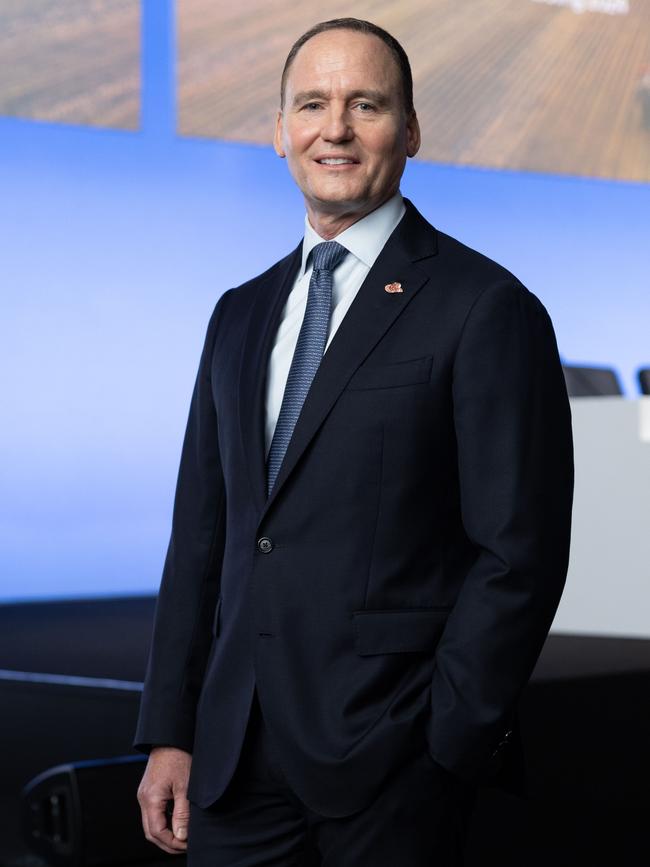
MacKenzie called out McEwan’s experience in bringing the best out of organisations, through his time as chief executive of UK lender RBS in the years after the global financial crisis and then more recently stabilising National Australia Bank.
McEwan meanwhile described MacKenzie as one of the best chairs in Australia and that is what convinced him to join the board. McEwan too paid tribute to BHP’s chief executive Mike Henry and the miner’s executive team. While acknowledging his non-mining background McEwan said he liked BHP’s strategy; the clarity of the strategy; the attention to safety; and the focus on the basics. This may sound familiar to McEwan’s former colleagues. At NAB, McEwan’s mantra was all about simplicity. There he constantly drummed into his executives the notion that if you got the basics right, everything else will follow. MacKenzie’s term finishes on Monday.
eric.johnston@news.com.au
More Coverage
Originally published as Election date means no RBA interest rate decisions will come into play during this campaign




